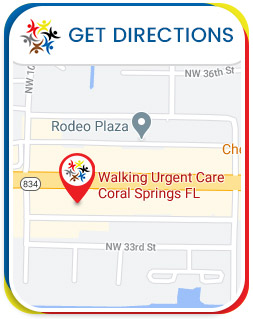Recreational Water Related Illnesses and Injuries
Here’s what you need to know about your child’s health and water safety before going to Summer-pools adventures. For more information, call us or schedule an appointment online. We serve patients from Coral Springs FL, Parkland FL, Tamarac FL, Margate FL, North Lauderdale FL, Coconut Creek FL.


With the warmer weather comes days of fun in the sun. If your summer plans include plenty of pool-filled adventures, take a look at what you need to know about your child’s health and water safety.
Swimmer’s Ear
Does your child have swimmer’s ear? This common childhood condition is an infection of the ear canal from bacteria or fungi. Repeated exposure to moisture, such as swimming regularly, can break down the delicate skin of the child’s ear canal. This leaves the area exposed to bacteria or fungal infections.
Pain is the most common symptom for children with swimmer’s ear experience. Older children may complain of discomfort, while younger children may tug or pull at their ears.
Along with pain, your child may also have clear, cloudy, or even yellow discharge draining from their ear or ears. Even though swimmer’s ear is uncomfortable and may make hearing difficult, it’s a treatable condition. A quick trip to the urgent care center can provide your child with a diagnosis and treatment plan. In most cases, antibiotic drops will clear the infection within a week to 10 days.
Recreational Water Illnesses
Swimmer’s ear isn’t the only pool-related infection to watch out for. Recreational water illnesses (or RWIs) are exactly what the name implies — illnesses from using recreational water spaces such as pools, waterparks, splash pads, oceans, lakes, rivers, streams, or any other shared bodies of water.
RWIs include several different illnesses, all spread through inhaling, swallowing, or otherwise encountering contaminated recreational water sources. The chemicals in pool, waterpark, hot tub, and other similar water sources can also cause some RWI issues.
Even though RWIs can cause eye, respiratory, skin, neurologic, or eye infections, the CDC notes that diarrhea is the most commonly reported complaint. The most likely people to get an RWI are children, pregnant woman, and anyone who is immunocompromised.
If your child has an unexplained infection or gastrointestinal symptoms following recreational water use, contact a healthcare provider as soon as possible. Depending on the cause of the RWI and the severity of the illness, your child may require medical treatment.
Pool-Related Injuries
Infections and illnesses aren’t the only issues surrounding summer-time pool use. Keeping your child safe is a top priority — and that means looking out for more than potential bacteria sources. Nearly 4,000 people drown nationwide each year, according to the CDC. While drowning can happen at any age, children and young adults are most at risk.
The CDC notes that younger children, ages one through four years, are most likely to drown in a swimming pool, spa, or hot tub. To reduce the risk of accidental drowning or pool-related injuries:
- Always supervise your child. You have no substitute for adult supervision. Never leave your child unattended at or near a pool (or any other body of water).
- Discuss pool rules. Your child needs to know how to keep themselves safe at the pool. Include rules such as no running, no diving (unless in an area marked safe to do so), no horse playing, and no venturing into the pool unless an adult is watching.
- Take swimming lessons. Does your child know how to swim? If not, sign them up for swimming lessons. Make sure the instructor has experience in teaching young children.
- Learn CPR. Even though the lifeguard on duty should know CPR, you might need to administer this life-saving technique yourself — especially if you have a backyard pool.
Even though drowning is the most serious pool-related safety issue, unintentional injuries are also possible. Running on a wet surface or playing roughly in the water can cause anything from scratches and sprains to broken bones.
Does your child have a pool-related infection or injury? Contact Walking Urgent Care, Inc, for more information.










